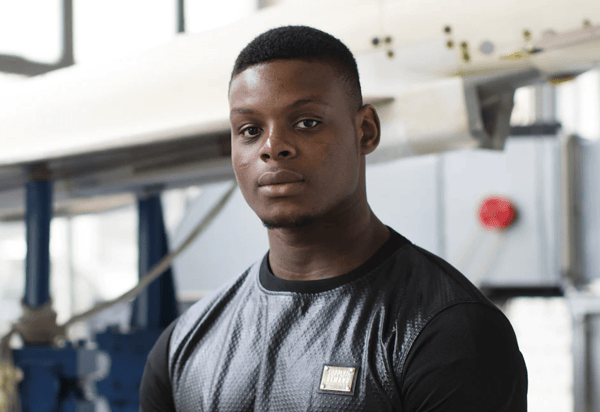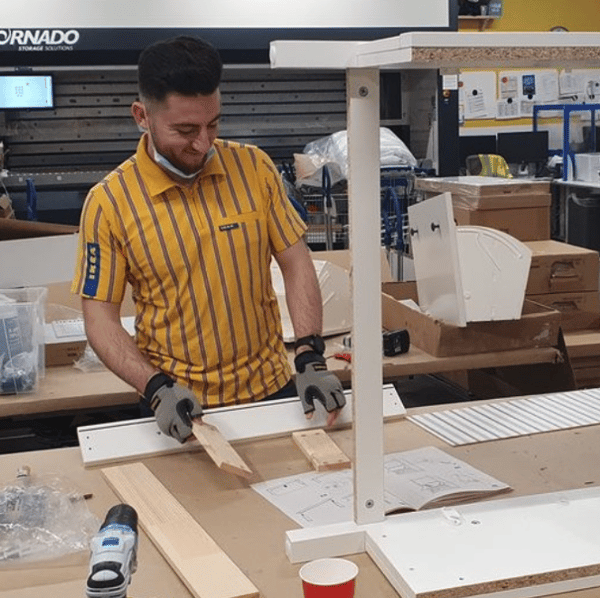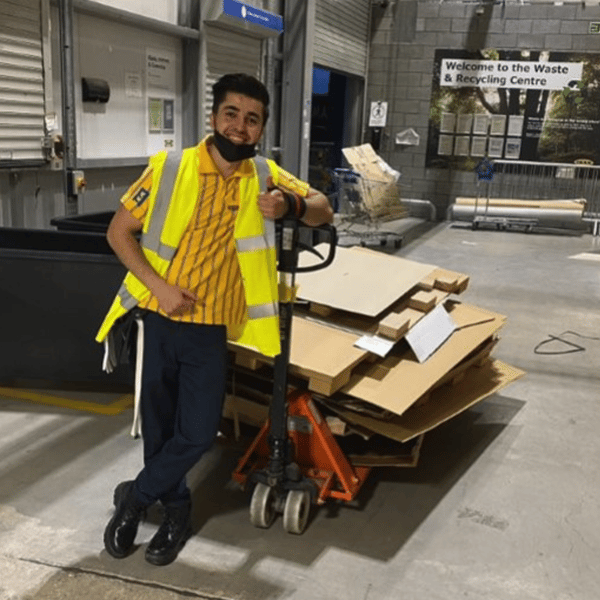IKEA supports Refugees through Skills for Employment
IKEA UK & Ireland work in partnership with the British Refugee Council in England, Scottish Refugee Council, Welsh Refugee Council and the Irish Refugee Council - charities supporting refugees in England and Scotland respectively – to give people who came to the UK having fled war, terror, violence and persecution the chance to learn the vital new skills needed to enter the UK labour market, and ultimately find long-term employment here.
Refugees can access a programme of employability workshops that include an introduction to IKEA's core values, the UK labour market more generally and they also receive support with CV writing, job applications, interview techniques and customer service training.
Work placements, paid at the Living Wage, then enable them to gain work experience at IKEA while developing their English language skills, improving their workplace confidence and becoming an active part of IKEA's co-worker community.
Those who complete the eight-week long placements are then awarded an employability skills record to take away for future job applications, with some having the opportunity to land permanent roles at IKEA.
As part of INGKA’s global commitment to support refugee integration with our Skills for Employment initiative, IKEA UK/IE launched UPPNÅ (meaning ‘to achieve’ in Swedish) in May 2021, a program offering an 8-week fully-paid placement in an IKEA unit, providing experience, a solid reference and for most participants — a full-time job at the end.
UPPNÅ means ‘to achieve’, and it was important to me that we welcome participants into our IKEA community not labelled as ‘the refugees’ but instead as ‘participants’. Employment is key to integration and we take our responsibility seriously as a fair and inclusive employer. A powerful part of creating a better everyday life for the many means a meaningful job with real future prospects.”
Ibtissam Ward
Key facts
- Ingka has committed to supporting at least 2500 refugees by 2022 through job training and language skills initiatives in 300 IKEA units across 30 countries, by rolling out a Skills for Employment program in all Ingka Group countries.
- In the UK/IE, the UPPNÅ Skills for Employment program works in strong partnership with British, Irish, Scottish and Welsh Refugee Councils.
- Participants include a mixture of men, women, younger, older. For some it’s their first job, others have degrees, high-level professional qualifications and lots of work experience in their home countries.
- 43 refugees have participated in UPPNA so far in the first 7 months, some are currently on the program, and of those who already completed, 95% stayed with IKEA in permanent roles.
Critical to the success of the project, has been the role of co-workers. With each UPPNÅ participant spending 8 weeks with a co-worker buddy and a supportive line manager.
“Our co-workers have really stepped up here and welcomed our participants in, showing kindness, understanding and above all else, an open mind and an open heart, - Ibtissam says, - "with amazing co-worker friendships being formed in the process. Ultimately, the shared experiences have helped to change what can be a restrictive narrative Ibtassim says, “Being a refugee is only one part of who someone is, through these connections we learn to see a person, not just that one aspect of them.”

















